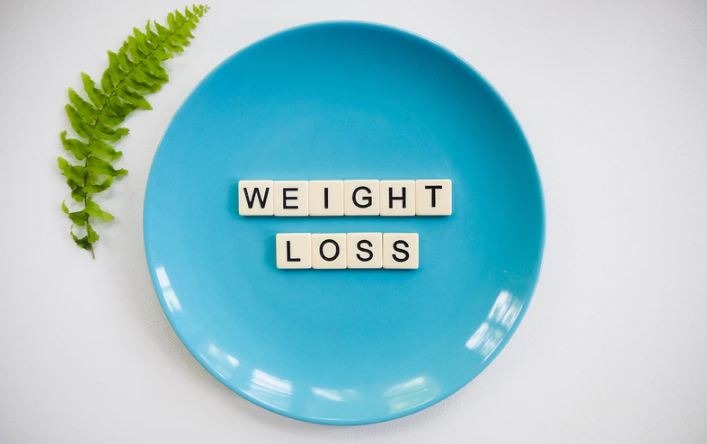When it comes to living a healthy lifestyle, which most people are aiming for, there has been a hype with a low-carb diet. A low-carb diet limits carbohydrates, like those found in starchy vegetables and fruits. In addition to that, it focuses on eating foods that are rich in protein and fat. There are also many different kinds of low-carb diets out there, and there are also many food options if you are on this kind of diet, including eating low-carb and high-protein bars.
Generally, a low-carb diet is used for weight loss. But there are also some low-carb diets that have other health benefits aside from weight loss, including reducing the risk of type 2 diabetes and metabolic syndrome. Typically, it limits the intake of grains, bread, fruits, pasta, legumes, and starchy vegetables. But there are also low-carb diets that allow small amounts of whole grains, vegetables, and fruits.
There are some people who think that being on a low-carb diet will raise cholesterol levels and cause heart disease due to the high-fat content. But based on scientific studies, low-carb diets are healthy and beneficial. If you are wondering about the good things that you can get from this kind of diet, you’re in the right place. Read on as we’re giving you the benefits of a low-carb diet.
A low-carb diet can help you reduce your appetite.
One of the worst side effects of dieting is hunger. This is why a lot of people feel miserable when they are on a diet and why most eventually give up. But when you opt for a low-carb diet, it leads to an automatic reduction in appetite. Based on studies, when people cut carbs from their diets and eat more fat and protein, they usually end up eating fewer calories.
At first, a low-carb diet can lead to more weight loss.
One of the simplest and most effective ways to lose weight is to cut carbs. According to studies, people on low-carb diets lose more weight compared to those who are on low-fat diets, even when the latter are restricting calories actively. This is because low-carb diets work to get rid of excess water from the body, which can lower insulin levels and lead to rapid weight loss in just a week or two.
This means that if you want to lose weight immediately, a low-carb diet is perfect. However, the only drawback is it seems to lose its advantage in the long term.
A low-carb diet can help reduce harmful abdominal fat.
You have to note that not all fat in the body is the same. Where it is stored determines how it will affect your health and risk of disease. There are two main types of fats, which are subcutaneous fat and visceral fat. Subcutaneous fat is located under the skin, while visceral fat accumulates in the abdominal cavity and is distinctive for most overweight men.
Visceral fats usually lodge around the organs. Having an excess of this fat is linked with inflammation and insulin resistance, which could drive metabolic dysfunction. To prevent this, low-carb diets are very effective. In fact, a greater proportion of fats that people lose on low-carb diets usually come from the abdominal cavity. Over time, it can lead to a radically reduced risk of heart disease and type 2 diabetes.
A low-carb diet can help reduce triglycerides.
Triglycerides are fat molecules found in the bloodstream. It is known that high fasting triglycerides levels in the blood after fasting overnight are a strong risk factor for heart disease. One of the main reasons for elevated triglycerides in inactive people is the consumption of carbs, especially the simple sugar fructose. When you cut on carbs, you can experience a reduction in blood triglycerides. Unlike low-fat diets that usually cause triglycerides increase.
A low-carb diet can help increase the levels of HDL or good cholesterol.
High-density lipoprotein or HDL is known as good cholesterol. Therefore, the higher the HDL levels relative to LDL or bad cholesterol, the lower the risk of heart disease. It is unsurprising that HDL levels can increase when you are on a healthy, low-carb diet, compared to low-fat diets wherein they tend to increase only moderately or sometimes even decline.
A low-carb diet can help reduce blood sugar and insulin levels.
Low-carb diets can be helpful for people who are suffering from diabetes and insulin resistance. Based on studies, cutting carbs can help lower both blood sugar and insulin levels. Some people who have diabetes and start a low-carb diet may need to reduce their insulin dosage by 50% almost immediately. However, if you are taking a blood sugar medication, it is important to consult with your doctor first before you make any changes to your carb intake.
A low-carb diet may help lower blood pressure.
Hypertension is a significant risk factor for a lot of diseases, including stroke, kidney failure, and heart disease. A low-carb diet is an effective way to lower blood pressure, helping you reduce the risk of common diseases.
A low-carb diet is effective against metabolic syndrome.
Metabolic syndrome is connected with your risk of heart disease and diabetes. It is a collection of symptoms, such as elevated blood pressure, high triglycerides, abdominal obesity, low HDL, and high fasting blood sugar levels. A low-carb diet is incredibly effective when it comes to treating all of these symptoms. In fact, under such a diet, these conditions may be nearly eliminated.
A low-carb diet may be therapeutic for some brain disorders.
The brain needs glucose as it has parts that can only burn this type of sugar. This is why the liver produces glucose from protein when you don’t eat any carbs. Also, a large part of the brain can also burn ketones, which are produced during starvation or when the carb intake is low. This diet can also cure children of epilepsy. In fact, very low-carb and ketogenic diets are now being studied for other brain conditions, including Parkinson’s and Alzheimer’s disease.
These are some of the benefits that you can get from a low-carb diet. However, before changing your diet, it is always better to consult with doctors. Keep in mind that severe carb restriction can cause symptoms like fatigue and headache. If you ever opt to follow a low-carb diet, it is important that you pay attention to the fats and proteins that you choose. Always limit foods that are full of saturated and trans fats like meat and high-fat dairy products, as these can increase the risk for heart disease. We hope this helped you learn more about the benefits of a low-carb diet.


